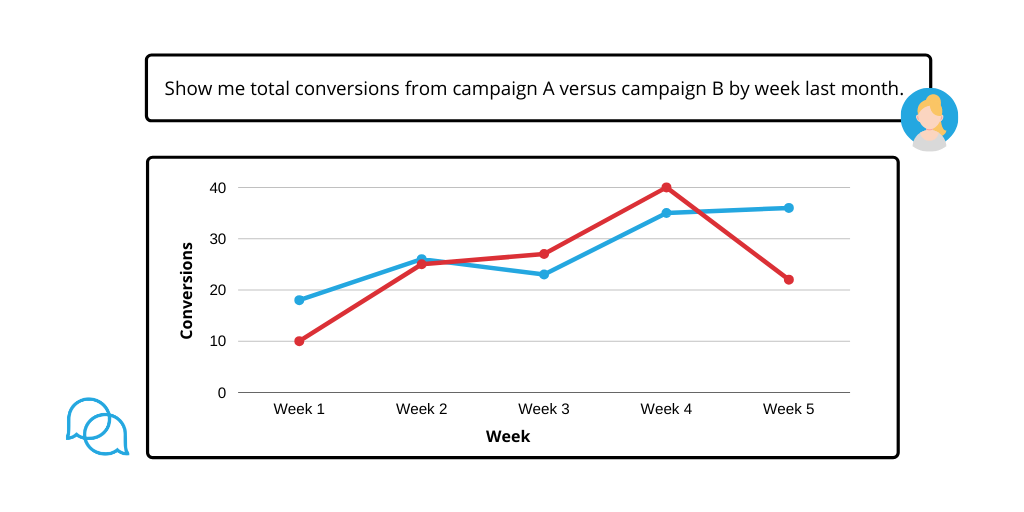AutoQL for Marketing Automation Software Non-Power Users
~4 minute read
Email marketing automations allow brands to meet customers exactly where they’re at, developing a carefully-crafted “personal” relationship with them through direct email messages based on data.
But digital marketing teams have to continuously consult both their email-related data (things like open rates, click through rates, and conversions) and other kinds of customer data (the type of content and campaigns they engage with and how often they visit certain pages or resources on the website) to understand whether their email content is resonating with, and driving outcomes from, their audience.
For every $1.30 spent on email marketing, companies can expect to see a $53 return on that investment. To make that $1.30 work even harder, teams need to be able to analyze and effectively leverage the insights derived from the metrics that reflect the outcomes of each campaign they run. The faster and more effectively email marketers can assess whether an email campaign is landing or not, the quicker they can iterate to get their desired result.
Whether they have advanced analytics skills or not, the marketing automation analytics tools used by email marketers need to be able to deliver comprehensive insights in a way that makes sense to them, so that any member of the team that is responsible for drafting email content and scheduling automations to run can leverage their data to make decisions that influence the highest likelihood of success.
Read more: Powering Impactful Marketing Strategies with Insights on Demand
With a conversational solution for data access like AutoQL, exploring data on a regular basis is as intuitive as asking questions like one might ask a colleague.

With intuitive self-serve data access options, teams can drive impactful outcomes based on the true story their data has to tell, more efficiently and more often.
Instead of leaning over to their team lead asking: “How many emails in campaign X were opened with subject line A this week versus subject line B?” email writers can turn to their embedded analytics solution and ask the very same question.
Even if analytics capabilities are limited, teams are more empowered to get granular in their day-to-day data analysis when everyone can simply ask questions like: “Show me total conversions from campaign A versus campaign B by week last month” and “Average clicks per link in emails from campaign A”.
Individual team members can also see how their efforts impact larger team goals and KPIs by asking “Total product subscriptions from campaign A this month”, “Top engaging emails this month”, or “Summary of all traffic to landing page X from email automation Y”.
Read more: Streamlining Analytics for Agile SaaS Product Teams
When every email marketer, and the rest of the digital marketing team, can find immediate answers to the questions they have about their audience, they can make changes and informed decisions that delight customers, increase engagement, and drive conversions, faster.
For software providers who develop marketing automation solutions, offering robust reporting and frictionless self-service analytics capabilities exponentially increases the value of the software and helps your customers achieve a data-driven advantage over their competitors.
Users come to rely on their marketing automation software as a holistic solution that helps them drive results and are therefore more likely to leverage the software more often and upgrade their subscriptions, thereby increasing revenue for the marketing software companies who build them.

